
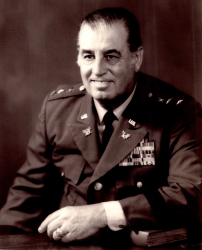 |
|
|
||
|
Gilbert Hume Woodward 'Woodie' |
||||
|
Graduate, U.S. Military Academy, Class of 1940 Engagements: • World War II (1941 - 1945)• Korean War (1950 - 1953)• Vietnam War (1960 - 1973) |
||||
| Biography: | ||||
|
Gilbert Hume Woodward Gilbert Hume Woodward was born on 8 June 1917 in Suffolk, VA. He attended the public schools in Suffolk and then attended the Columbian Preparatory School in Washington, DC. In 1936, Woodward was appointed to the U.S. Military Academy by Representative Colgate Darden of Virginia. He graduated in the Class of 1940 and was commissioned as a Second Lieutenant in the Cavalry. After attending the Cavalry School at Fort Riley, KS, Woodward joined the 8th Cavalry Regiment, 1st Cavalry Division, at Fort Bliss, TX, where he served as a platoon leader and troop commander. He left in 1942 to become an Assistant G-3, in the 84th Infantry Division. Following his graduation from the Command and General Staff College in 1943, Woodward returned to the 84th Infantry Division as a Training Inspection Officer. In March 1944, he became Commanding Officer, Special Troops, 94th Infantry Division. He served in this position through four major European campaigns and after World War II ended, he spent a brief time on occupation duty in Czechoslovakia. Woodward returned to the War Department and served in the Personnel and Training Branch, Civil Affairs Division, leaving in 1947 to attend graduate school at the University of Virginia. At the conclusion of his studies in Political Science, he was assigned as an Assistant Professor in the Department of Social Sciences, U.S. Military Academy. While at West Point, Woodward continued graduate studies in Public Law and Government at Columbia University. In 1950, Woodward attended the Officer Advanced Course of the Armor School at Fort Knox, after which he assumed command of the 42nd Armored Infantry Battalion, 2d Armored Division, moving with the Division to Germany in July 1951. He left this position in 1953 to become Staff Secretary to the U.S. Commander, Berlin. On completion of this assignment in 1955, he attended the Armed Forces Staff College in Norfolk, VA. Woodward was then ordered to the Army General Staff, where he served in the Plans Directorate, Office of the Deputy Chief of Staff for Military Operations; as Special Assistant for National Security Council Affairs; and as Chief of the International Policy Planning Division. He attended the Nation War College in 1958-59 and, after graduating, served at Supreme Headquarters Allied Powers Europe (SHAPE). After leaving this post in 1962, he commanded Combat Command B, 3d Armored Division, in Germany, returning to Washington, DC, in 1963 to become Deputy Director of Coordination and Analysis, Office of the Chief of Staff. During that tour, he was promoted to Brigadier General and served as Chief, Programs Division and later as Chief, Strategic Plans and Policy Division, J-5, Organization, the Joint Chiefs of Staff. While a member of the Joint Staff, BG Woodward directed a study of NATO Military Force Posture for the Department of Defense, and later served as Military Assistant to the Honorable John J. McCloy, Special Assistant to the President, in the Tripartite Conference on NATO Force Posture. Leaving that post in September 1966, he became Assistant Division Commander, 2d Armored Division. In April 1968, he was appointed as the Senior Member United Nations Command Component, Military Armistice Commission in Korea, where he represented the United Nations Command in its confrontations with the North Koreans. Through a series of meetings, he honed and developed a gift for negotiation and coolness in the face of insult and innuendo. He acquired the ability to hold his own against the North Korean’s familiar screen of abuse, learning to accept (with a frosty smile) being called a “running dog of U.S. imperialism" and a "bloodthirsty Wall Street lackey.” While in this assignment, he was the US representative who successfully negotiated with the North Koreans for release of the remaining 82 crewmembers (one crew member was killed during the takeover of the ship) of the USS Pueblo that were taken prisoner on 23 January 1968. After months of negotiations aimed at securing release of the crew, he agreed to an embarrassing “apology," admitting that the electronics-laden ship had violated North Korean waters. But before signing the “apology,” he publicly denounced it as a lie. “I will sign the document to free the crew and only to free the crew,” he declared. The Pueblo crew was released on 23 December 1968. In March 1969, Woodward returned to Washington as Director of Plans, Office of the Deputy Chief of Staff for Military Operations, Department of the Army. In September 1970, Major General Woodward departed for Korea where he commanded the 2d Infantry Division until November 1971, when he returned to the U.S. and became the Deputy Director of the Joint Staff, Organization, the Joint Chiefs of Staff. Ordered to Vietnam in May 1972, he served as the Chief of Staff, U.S. Military Assistance Command, Vietnam (MAC-V), through January 1973. Following the Paris Agreement on Vietnam, he was selected to be the Chief United States Representative, Four-Party Joint Military Commission, Vietnam. In June 1973, Woodward was appointed as the Inspector General of the U.S. Army and promoted to the rank of Lieutenant General. LTG Woodward was serving in this assignment at the time of his death on 17 October 1973. Medals and Awards Army Distinguished Service Medal with Bronze Oak Leaf Cluster Foreign Medals and Awards Czechoslovakian War Cross Death and Burial Lieutenant General Gilbert Hume Woodward died on 17 October 1973 in London, England, at age 56. He was on a flight from Washington, DC, to London, England when he collapsed. The airliner on which he was a passenger was given priority for landing at Heathrow Airport and an ambulance and physician were awaiting its arrival. However, he died soon after he was admitted to Ashford Hospital, located near the airport. LTG Woodward was enroute to West Germany, with an aide, on an official visit to U.S. forces in his role as Inspector-General of the Army. He was survived by his widow, Stuart Hensley Woodward; a son, Charles, of San Diego; a daughter, Delves; a brother, John Delves Woodward; and his father, Richard Lafayette Woodward. He is buried with his relatives at Cedar Hill Cemetery in Suffolk, VA. |
||||
| Honoree ID: 3242 | Created by: MHOH | |||
Ribbons
Medals
Badges
Honoree Photos
 | 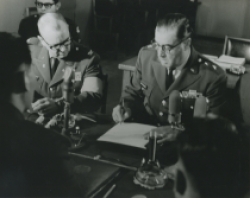 | 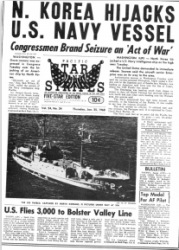 |
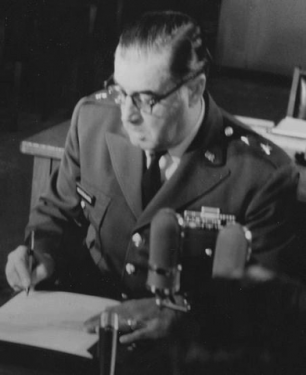 | 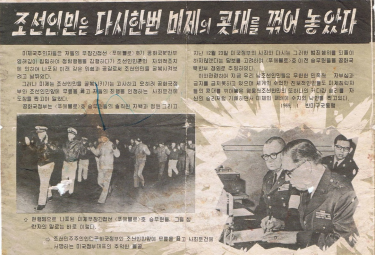 |
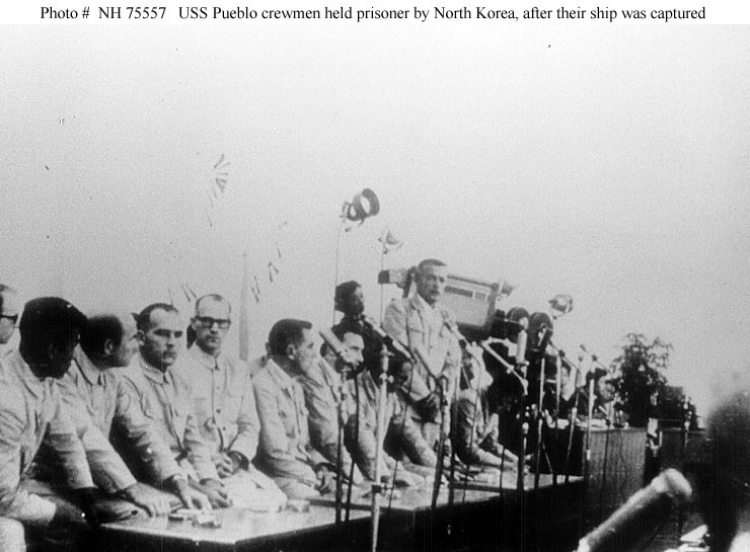 |


